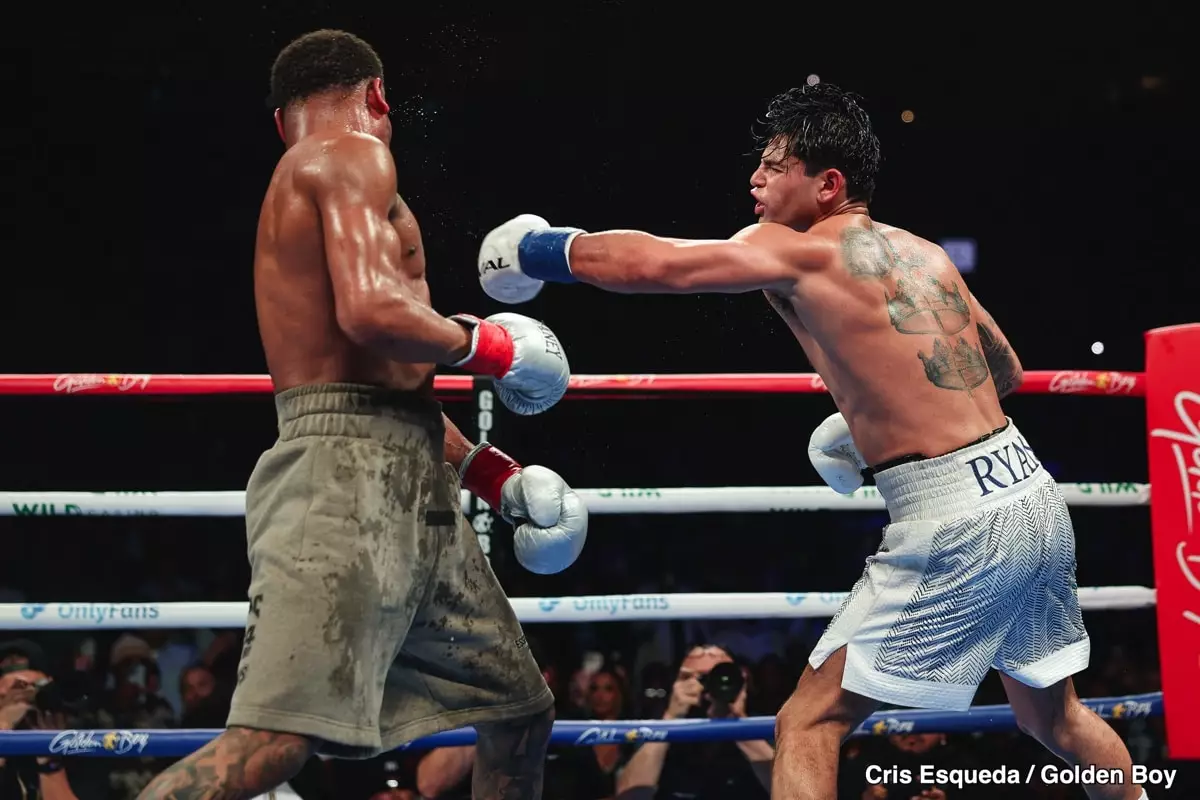With the highly anticipated boxing rematch between Ryan Garcia and Devin Haney still looming, the pre-fight scenarios have taken an interesting turn. This article delves into the implications of both fighters opting for tune-up bouts rather than engaging in an immediate clash at the Times Square venue in New York City. Key figures in the boxing community, including Ade Oladipo, have publicly voiced their concerns and opinions about the decisions made by both fighters and their management teams.
In the world of boxing, a “tune-up” bout serves as a preparatory fight for a boxer who may not have been in the ring for some time or requires a mental reset before engaging in more significant challenges. In this specific instance, Haney (31-1, 15 KOs) and Garcia (24-1, 20 KOs) have decided to pursue these seemingly “soft” match-ups rather than confront one another. This choice raises questions regarding their readiness and motivations. Ideally, the purpose of a tune-up is to strengthen a fighter’s position; however, it is just as likely to result in unforeseen setbacks, especially considering the potential for upsets in boxing.
Garcia will be facing Rolando ‘Rolly’ Romero, who is coming off a knockout loss to Isaac Cruz. This matchup arguably seems favorable for Garcia, as Romero is perceived to be a less formidable opponent. On the other hand, Haney is pitted against Jose Ramirez (29-2, 18 KOs), a former unified champion in the 140-pound category. The nature of these bouts sets the stage for contrasting paths for both boxers leading up to what many hope will be a much-anticipated rematch.
The Perils of Team Decisions
It has been suggested that the delay in the Garcia vs. Haney rematch can be attributed to decisions made by their respective teams. Ade Oladipo argues that someone on either side declined a direct confrontation, citing the busy nature of boxing negotiation dynamics. The boxing community has seen quicker rematches materialize under other promoters, including Turki Al-Sheikh’s promotion of high-profile matches involving Oleksandr Usyk and Tyson Fury. The inconsistency raises questions about the rationale behind playing it safe prior to a significant contest.
Fans and analysts alike are discontent with the lack of spontaneity that often complicates match negotiations in boxing. The scenario reeks of missed opportunities—particularly in the eyes of supporters who crave the excitement of watching fighters of high caliber face off against one another. Oladipo’s remarks resonate deeply with sentiments expressed by many fans, who see it as benefiting neither boxer to postpone a direct rematch when both possess significant stakes in securing their legacies.
The underlying motivations for Garcia and Haney to take tune-up bouts speak volumes about their positions in the sport. For Haney, the fresh wounds of defeat from their last encounter (in which he suffered three knockdowns) call for a reclamation of dignity. A tune-up fight does seemingly serve this purpose, allowing him to regain confidence before facing Garcia again. However, is a bout against a riskier competitor like Ramirez the right choice for that redemption arc? The dangers inherent in such a matchup raise red flags about whether this strategy is sound or unnecessarily risky.
Garcia, on the other hand, may seem to have an easier ride against Romero, but this path also poses challenges. A superior performance could establish him as a strong contender and possibly set an essential narrative for the rematch. Nevertheless, an unexpected slip could sideline his aspirations, illustrating that the volatility of the boxing landscape remains ever-present.
Boxing is a sport that thrives on emotion and anticipation, and the current climate surrounding Garcia and Haney reflects a growing dissatisfaction among fans. The anticipation for a showdown between two fighters with such evident rivalry has, unfortunately, led to feelings of postponed expectations. Earlier discourse suggested an eagerness for immediate action, not offering the luxury of wait-and-see. The potential for delays or alternate plans only excites skepticism in an audience hungry for action.
While tune-ups may serve behind-the-scenes strategies, they come laden with risks. The boxing landscape is increasingly fraught with unpredictability, where the choices of athletes and their teams can either bolster or jeopardize futures. For both Garcia and Haney, these decisions’ ramifications could echo far beyond the ring, shaping their legacies in a sport that often demands immediate accountability for every swing of the fist.

